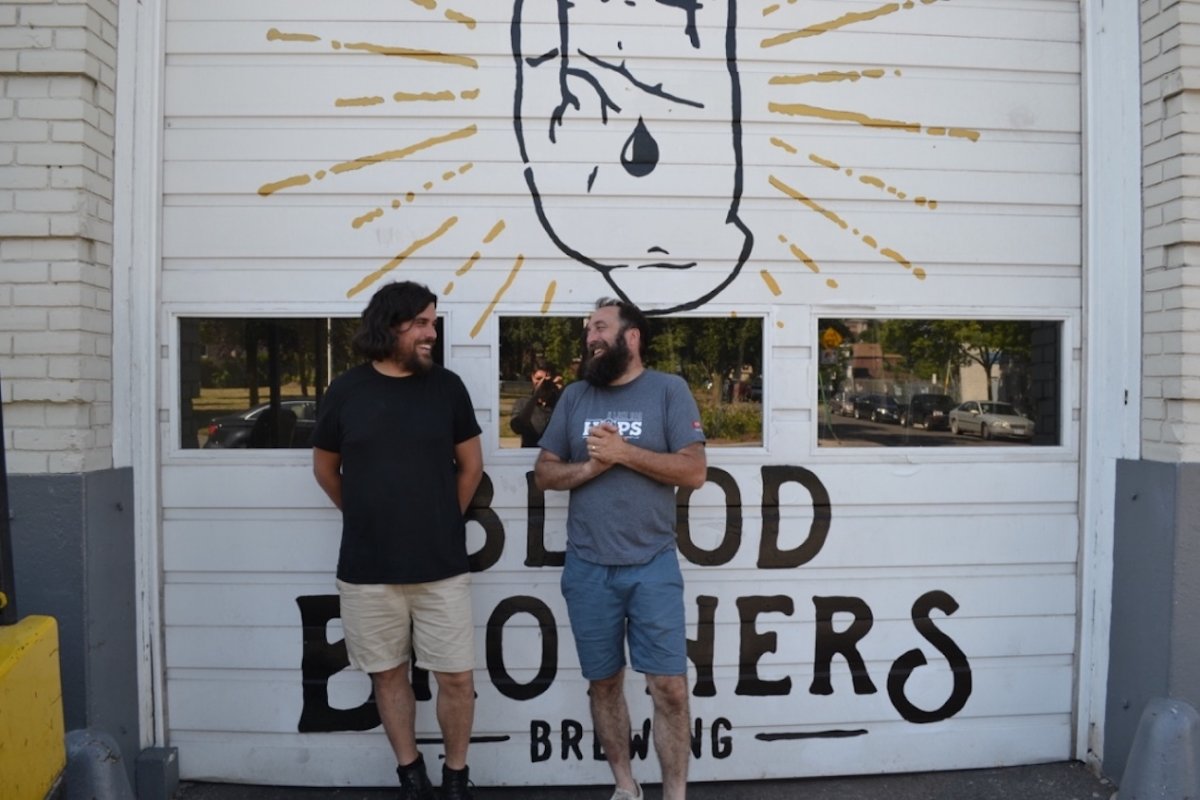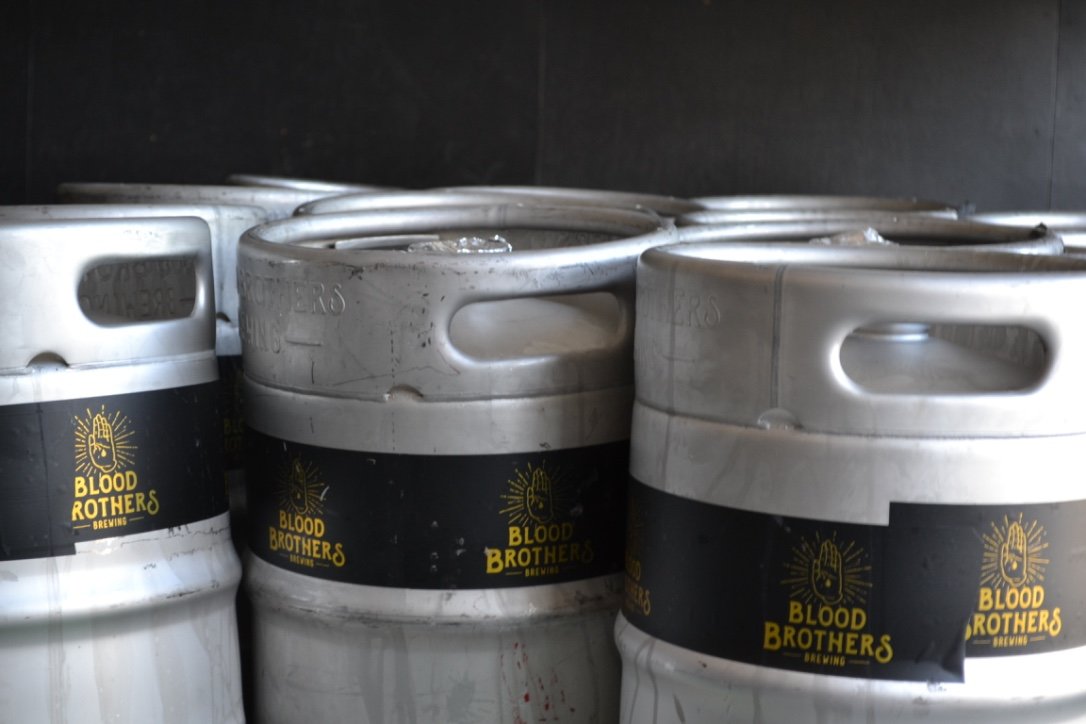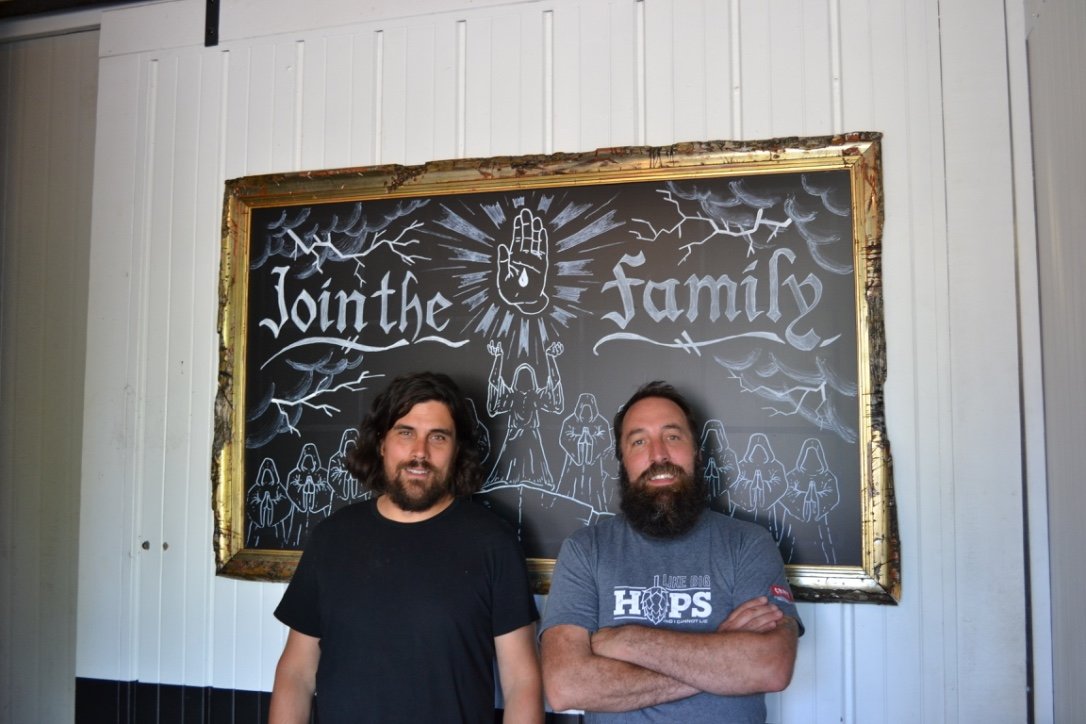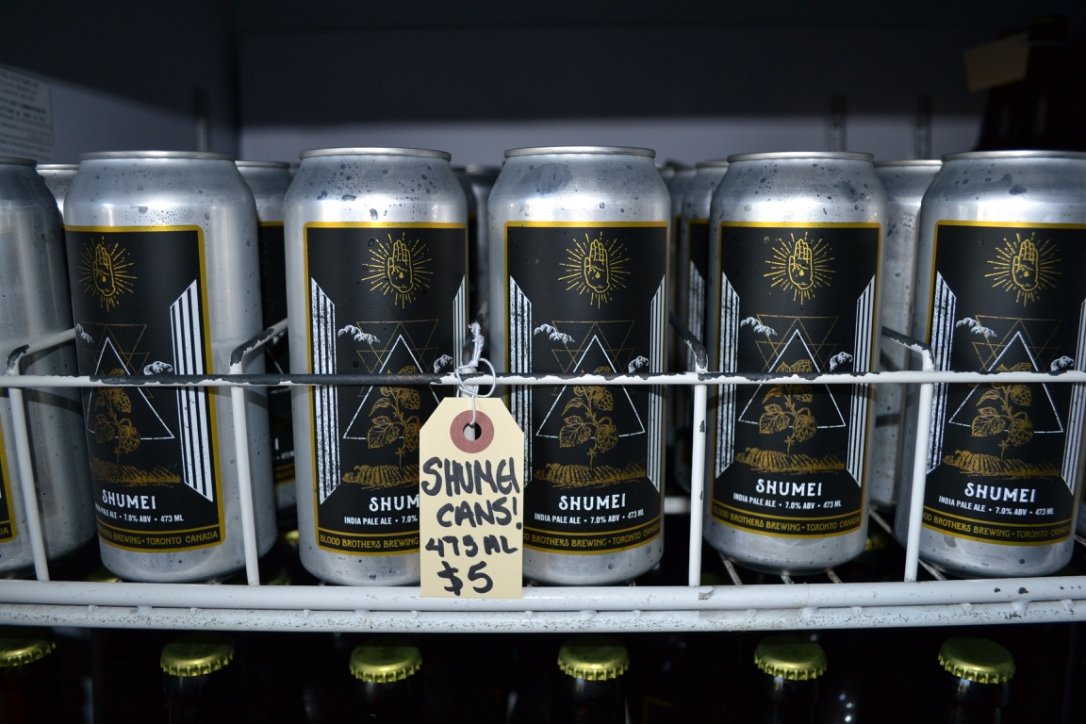The Blood Brothers turned a hobby into one of Toronto’s hottest breweries
By: Vin Heney on September 21, 2018
You’ll have to excuse the Blood Brothers — they do things a little differently.
Owners of one of Toronto’s buzziest breweries, real-life brothers Brayden and Dustin Jones — originally from Amherstburg, Ont. — operate on their own terms. They made a name for themselves by serving up experimental beers out of an old auto body shop and they refuse to use the province’s preeminent distribution channel, the LCBO.
We cracked a beer with the brothers to learn about their history with entrepreneurship, the hobbies that defined their careers, and how a trip to Portland changed everything.
Keeping it in the family
As is often the case with entrepreneurs, the brothers were introduced to self-employment from an early age. For nearly 50 years, their parents owned and operated an apparel store in their hometown, and save for a handful of summer jobs, Brayden and Dustin always worked there.
“It kind of gets engraved into you — the spirit of doing your own thing,” says Dustin.

“They’d kick us out in the summer and tell us to go find a job, that way we’d appreciate their store, working in air conditioning,” says Brayden. “I went to college and realized I hated what I went for, so we opened a new store in (the nearby town of) Kingsville, and I did that until we had enough of small town and that’s when we moved to Toronto.”
Hobby horses
Initially, the move to Toronto was all about music. The brothers formed a band and pursued the rock ‘n roll dream for five years. But despite the artistic fulfillment, it wasn’t sustainable. Luckily it led to something that was.

“We really had a passion for it,” says Brayden, “so it felt like we had to get it out of our system. It was fun while it lasted but it got to a point where we decided it’s time to take things a little more serious. We had to pay the bills so we were doing all kinds of odd handyman stuff, and that’s what led us into contracting.”
Soon the contracting work — home renovations, building upgrades, etc. — became lucrative and a business was born, but it wasn’t the business they wanted.
“When we stopped playing music, we were just working to catch up on debt,” says Dustin. “I think when we finally got caught up, it was like ‘what are we going to do for fun again?’ We were pretty jaded with music, so we got into homebrewing, and like our other hobbies, it just kind of went crazy.”
Humble beginnings
The brothers always loved good beer, and at the time there were only a handful of breweries in Toronto doing anything outside of the box. But starting a brewery was never on their radar until a fateful trip to a certain weird city in Oregon.

“I think the biggest eye opener before we decided to open the brewery was a visit to Portland,” says Brayden. “The beer culture there was just mind-blowing. The entire city ticked around brewing beer. So you come back here and there’s a couple of great breweries that we like, but it was like ‘this could actually be a thing’. After enough time we convinced ourselves that we wanted to be a part of it.”
One house party later (where the brothers were introduced to some top-notch homebrew), and they were all in.
“We bought a kit the next day and buggered up two recipes,” explains Brayden. “We got really drunk because we were excited to make beer, then we made it really poorly (laughs),” says Dustin. “Then we started getting more serious, did a lot of reading, a lot of Googling, a lot of everything.”
The homebrewing quickly outgrew the home.
“Eventually I had too much beer in the house and my wife was like ‘you guys should find a hobby spot’, says Dustin. “But in order to afford the hobby spot, we had to sell the beer. So we came up with a break-even plan on how we could do this as a hobby and sell it legally.”
It took them six months to get the space set up, then just six months later they realized they needed more space and had to move out.
“It wasn’t a very good business model. It was just for fun. It really was just for fun.”
The brew and the brand
The space was bigger and the sales were growing, but the brothers knew they needed more than just great beer — they needed an identity.
“We liked the idea of family, but in a different way; it was like anyone can be part of this secret family,” says Dustin. “We kind of built it into a cult-y, illuminati-esque vibe. We sat down with friends and family and hashed out the ideas, and we had a friend that was doing the design. She probably did 40 mockups, and then one just hit — we were all like ‘this is the one.’”

The idea was to keep the space small and the beer as fresh as possible. Because they were producing to maximum capacity, their product was able to turn around in three to four weeks.
“We got turned off going to the LCBO and finding 3,4,5 month-old IPAs on the shelf. I can go to the bar and get it fresh, then I go to the LCBO and I’m getting it 5-months old and it’s not the same thing.”
And they had another beef with the LCBO: distribution through the provincial channel meant risking oversaturation.
“We developed a very good licensee business, so there are lots of bars with our product in the city, and to keep it interesting, we don’t want to saturate our own product. So you can get it at all the bars you go to, but you can’t get it at the LCBO,” explains Dustin. “It makes it more exciting for the bars to carry our product, and it also makes it more exciting for the consumer when they go to the bar, because they’re like ‘I either get this at the bar I’m at now or I’ve got to go to the brewery.’
The blood of the future
Brayden and Dustin admit that good timing and a prime location have added to their success, but for them, it’s always been more passion than profit.

“You see a lot opening more as a business plan to make money rather than as a creative outlet,” says Dustin. “What we originally opened this for was a creative outlet. And it just so happened to turn into a business.”
And while there are big plans to optimize their space and expand their business, those plans aren’t coming at the expensive of why it worked in the first place.
“Production’s gonna get pushed out of the city at some point,” says Brayden. “But we’ll still keep a small brewery inside the city core.”
“When you get bigger, there are a lot more headaches,” says Dustin. “But we enjoy the challenge of figuring out how to make the machine a little bigger, how to tune it, but keep it feeling small.”
“We have a lot of dreams”, says Brayden “...whimsical ideas."


